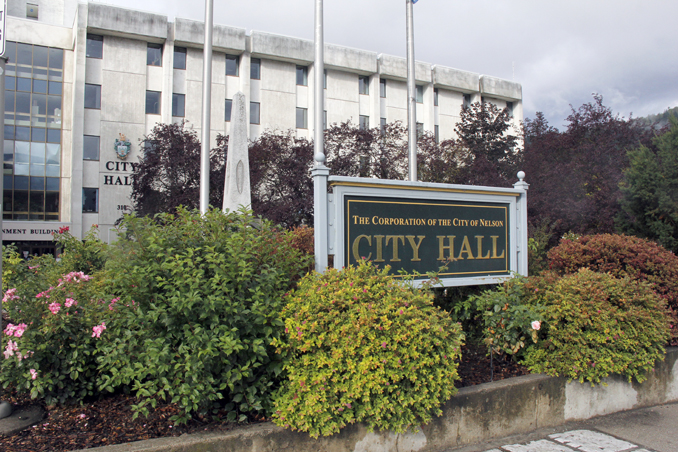Regional composting program narrowly receives council support
The regional composting program may be on track to visit Nelson curbs but the particulars of the program are still unclear.
The city has elected to sign on to the Regional District of Central Kootenay’s (RDCK) Organics Waste Diversion Strategy, a program that has been in the bullpen for over one year.
Although the program is three years away from realization, the city is expected to be responsible for the operation and cost of curbside collection once it takes effect — a responsibility that carries an undetermined price tag.
It was because of the uncertainty of the cost — and the belief that an in-house curbside composting program could be more cost effective — that debate on the motion ran long in council chambers, but eventually narrowly passed in favour of supporting the regional directive.
When it did finally pass, council agreed it would be asking for several points, including increasing tipping fees for users at the Grohman Narrows transfer station, that the regional district’s part of the program would “self funded,” and that incentives for rural residents would also be available in Nelson.
As well, council passed a further motion to incorporate how Nelsonites could forgo the regional district program and undertake an alternate composting strategy, if they so chose.
The decision to join the regional district program flew in the face of city staff advice.
“The estimated costs to collect curbside and process centrally is greater than the city supplying a household with a food recycler,” read the city staff report. “The full cost of the central compost curbside model is a fixed cost to the homeowner and will be billed to every home owner through the city’s collection and disposal fees.”
The report noted that food waste material would have to sit around for a week to two weeks, creating odor problems when separated from other waste material.
“It would likely have to be combined with yard waste material which is not available to all households. It can also create wildlife attraction problems,” the report concluded.
The strategy — bringing curbside composting to the city by 2022 — calls for the construction of a regional-scale compost facility at both the Creston and Central (Salmo) landfills.
The regional district’s program would include organic material collected curbside in the municipalities of Nelson, Castlegar and Creston, along with the agricultural and industrial, commercial and institutional sectors.
Under the strategy, municipalities would be responsible for curbside collection of organics and the regional district would be responsible for the composting process, said Amy Wilson, the RDCK’s resource recovery manager.
The RDCK strategy is for the service to be user pay funded, with the only option identified for municipalities like Nelson is a curbside program.
The RDCK will have to collect between $95-$160 per tonne depending on the mix of participants, Wilson explained, with the RDCK targeting an initial cost of $100 per tonne.
Unfortunately this would mean a fee increase for the Nelson collection program of between $90-$160 per household, in addition to the $66 per household Nelsonites already pay.
“This increase would be dependent on the material collected and frequency,” the report noted.
The Organics Infrastructure Program (OIP) is a multi-level government grant opportunity the regional district is pursuing to fund up to two thirds of the compost facilities’ construction costs, noted Wilson in her presentation to city council.
However, the OIP grant funds must be spent by 2022, meaning the RDCK will have to have operational compost facilities by 2022 or sooner.
In-house solution
One household solution proposed by city staff is the Food Recycler, which carries with it an increase overall on resource recovery programs, by approximately $80 to $105 per household per year, depending on grants.
- The amount that would be on Nelsonites’ recycling utility bill would be between $2 and $26, depending on grant funding.
- The actual cost to the household would vary based on usage: those that produce more food waste would pay more and those that use less would pay less.
- The capital cost to provide a Food Recycler to all households would be between $330,000 and $990,000, again dependent on grant funding.
- This cost would be amortized over the life of the units, which was conservatively estimated at seven years.
— Source: City of Nelson


























